Can Pigs Eat MEAT? Is It Safe or Will It Actually Kill Them?
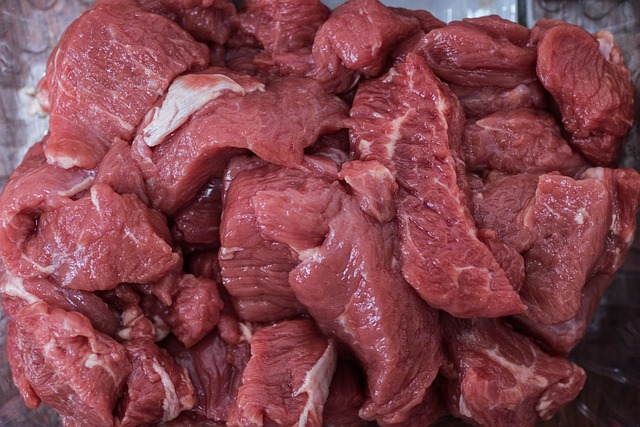
Ever wondered if pigs can chow down on meat?
Oh, I can practically hear you screaming "YES!" 😄
Well, you've come to the right place, my friend.
Don't worry, I get it.
You've probably looked at a pig and thought, "Hmm, can this cute little oinker actually indulge in some meaty goodness?"
Trust me, I've been there too.
So, buckle up, pig enthusiasts, because we're about to delve into the intriguing world of dietary habits of these snorting creatures.
Ready?
Then let's dive in!
The Pig Digestive System to Digest Meat
You know, pigs have a pretty interesting digestive system.
Just like us humans, they have a simple stomach and a short digestive tract, which helps them digest meat really well.
It all goes back to when pigs were wild boars.
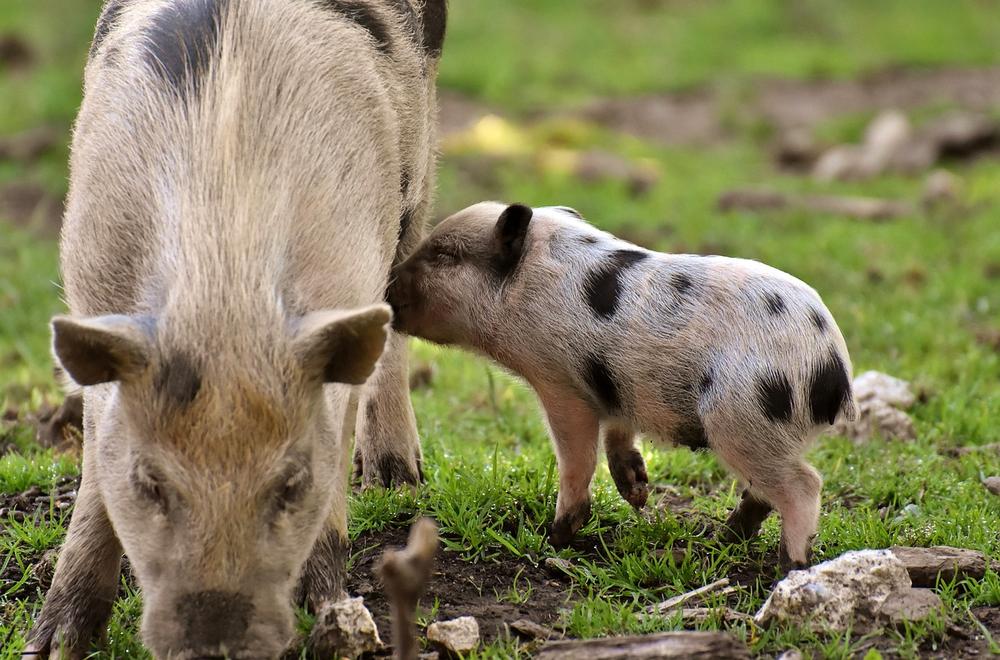
They used to scavenge for food, looking for scraps and overripe fruits.
But here's the thing:
Pigs are considered unclean because they can't digest cellulose, which is what makes up plant cell walls.
And let's be real, they eat just about anything, even filth.
Now, let's dive into some cool facts about their digestive system:
- Pigs have this amazing multipurpose mouth that's perfect for both eating and rooting around. Their powerful jaws crush food into smaller pieces, while their snouts allow them to explore their surroundings. Pretty neat, huh?
- Another interesting fact is that pigs produce a whole lot of saliva. This saliva helps them digest complex carbohydrates and also acts as a lubricant for their food.
- Pigs are omnivores, meaning they eat both meat and plants. To keep healthy and well-nourished, they need a balanced diet.
- And get this – pigs have this special enzyme called pepsin that helps break down proteins in meat. It's produced by the lining of their stomach.
So there you have it, my friend. Now you know some fascinating details about how pigs' digestive systems work and why they're so good at digesting meat. 🐷
And here's the exciting part - pigs can put their extraordinary digestive system to use by consuming a variety of meats, including poultry leftovers, fish scraps, and even small rodents or insects!
The Kinds of Meat That Pigs Can Eat
Pigs eat a little bit of everything.
They're omnivorous creatures, just like you.
Leftover poultry?
Check.
Fish scraps?
Absolutely.
Small rodents or insects?
No problem. Pigs are not picky eaters when it comes to meat.
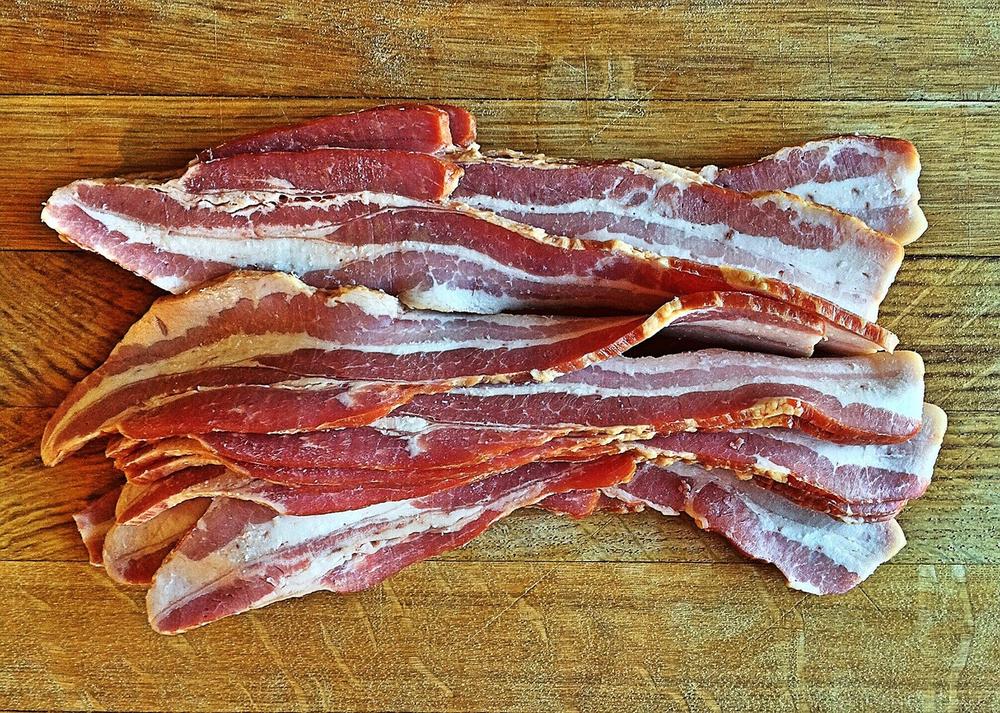
They'll gobble up any kind of meat you give them.
Just make sure it's not spoiled or rotten.
Pigs may have cast-iron stomachs, but they still need good-quality food.
So if you have any leftovers from your own meals, feel free to feed the pigs.
They'll be happy to munch on your scraps.
By the way, have you ever wondered if pigs can eat bananas or banana peels?
I've written a helpful blog post titled Feeding Bananas to Pigs that you might find interesting.
Feeding Pigs: Safety and Considerations for Meat Consumption
Ensuring pigs are safe and their meat is of good quality is necessary for feeding them.
Here's what you should please bear in mind:
- Make sure the meat isn't spoiled or moldy. This is important for the pigs' health.
- Give domesticated pigs real pig pellets that you can find at poultry supply or pet stores. These pellets have all the vitamins and nutrients they need to grow, reproduce, stay healthy, behave well, and live longer.
- Don't feed the pigs leftovers or rotten food. Also, don't give them dog or cat food or anything that isn't meant for them. Those foods can make them weak and harm their immune systems.
- Don't put any meat in their feed, and make sure their feed hasn't come into contact with meat.
- If you see anything suspicious while feeding pigs or notice any signs of sickness or unexplained deaths in farm animals or wild pigs, tell the local Department of Primary Industries and Regional Development vets or livestock biosecurity officers. Keeping pigs healthy is an important part of making sure we have enough pork.
- When you go camping or you're in places where there are wild pigs, ensure you take all your food scraps home so the pigs can't get to them. This helps reduce the risk of spreading diseases and keeps the environment balanced.
The pigs will remain secure and in good health, while also encouraging the adoption of favorable practices for consuming their meat by adhering to these instructions.
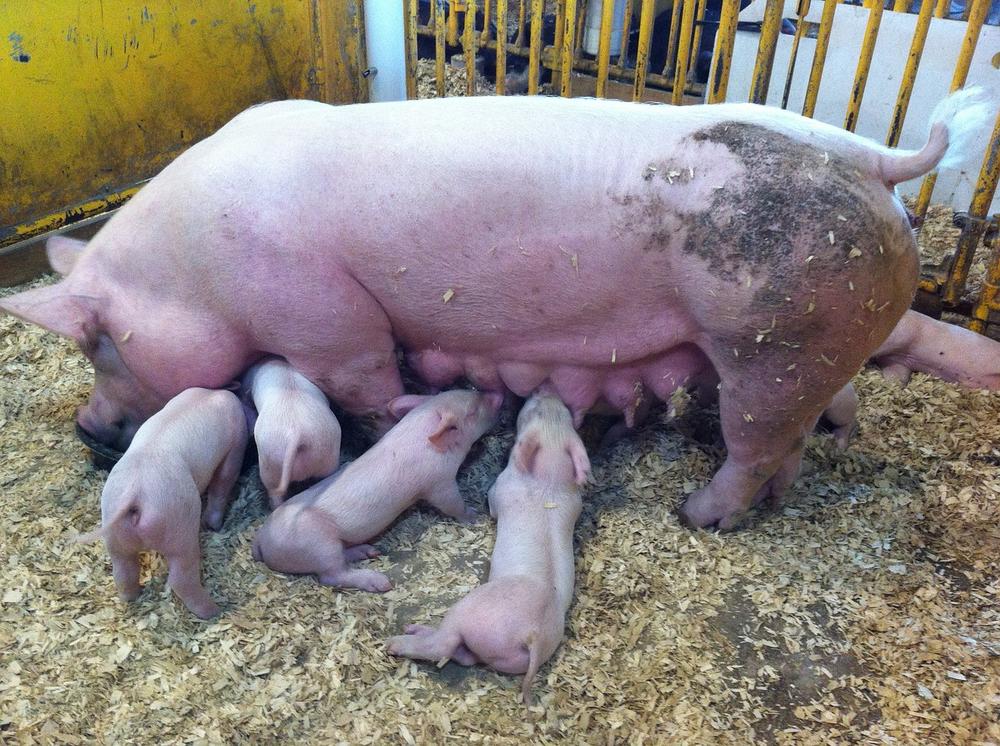
Now that we've covered the important considerations for safely feeding pigs and ensuring the quality of their meat, let's delve into some broader factors surrounding pig diets.
You may be surprised to learn about the potential risks associated with overfeeding pigs and how modern farming practices are evoking concerns about animal welfare.
Are you ready to explore the intricacies of a balanced pig diet and the ethical debates surrounding pork consumption?
Join me as we uncover these fascinating insights!
The Downsides of Feeding Pigs Meat
Feeding pigs meat can lead to health issues
Did you know that giving pigs too much meat can cause them a lot of problems?
Just like us humans, pigs can get joint problems and heart disease if they eat too much meat.
So, it's important for pigs, especially cute pet pigs prone to obesity, to have a balanced diet with all the nutrients they need without going overboard on the meat.
The prohibition of pork in certain religions
Did you know that some religions strictly forbid eating pork?
For them, pigs are considered "unclean" so they steer clear of any pig meat.
It's been their tradition for quite some time now, showing how pigs have been historically regarded in different cultures and religions. It's not just about health risks, but also cultural and religious beliefs.
Concerns about animal welfare in pig farming practices
Now, here's something that has been causing a stir lately.
Modern pig farming practices, particularly confined feeding operations, have faced harsh criticism for how they treat animals.
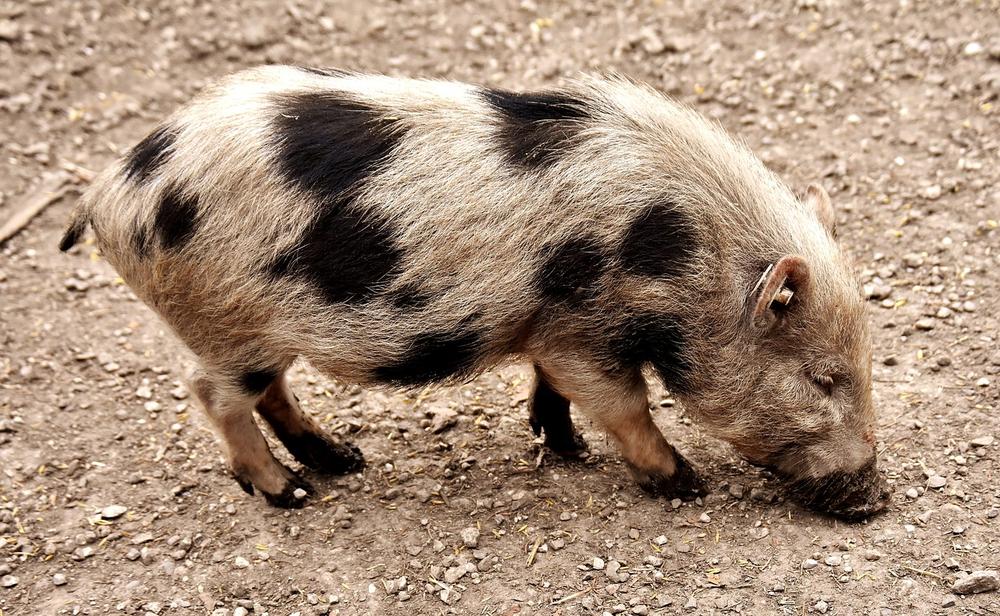
Many people believe these practices are simply inhumane. These concerns have led to widespread backlash and major chains have started demanding better conditions for pigs.
They're pushing their suppliers to use alternative methods that prioritize the well-being of these animals.
There you have it.
Feeding pigs meat might not be as innocent as it seems because of the health risks and ethical implications involved.
But what other options are there for feeding pigs?
Can they enjoy a variety of fruits and vegetables just like us humans?
Let me tell you, the answer may surprise you!
Other Things That Pigs Can Eat
Pigs can eat a variety of fruits and vegetables:
- Cooked broccoli, dark green lettuce, beets, grapes, oranges, grapefruit, melons, pitted peaches, pitted cherries, pitted apricots, cooked potatoes, squashes, pumpkins, yams, zucchini, kale, tomatoes, chard, carrots, apples, snow peas, cucumbers, and spinach are great choices as they provide essential vitamins and minerals.
- However, pigs tend to dislike raw broccoli, eggplants, sprouts, peppers, asparagus, artichokes, cabbages, cauliflower, onion, and corn husks.
- You ought to caution when feeding piglets seedy fruits or foods to prevent complications.
- Avoid giving pigs wild mushrooms as they pose a risk of poisoning.
- While pigs can graze on grass, eat edible roots, and hunt non-poisonous insects, make sure to avoid chemical-laden grass.
- Pigs require 5 to 10 liters of water daily, with pregnant or mothering pigs needing twice the average amount.
- Interesting fact: Romans incorporated pigs into their religious ceremonies and cuisine.
- Some producers embrace more humane farming practices, allowing pigs to roam on pastures or graze in woods.
So remember, pigs have diverse dietary preferences beyond meat!
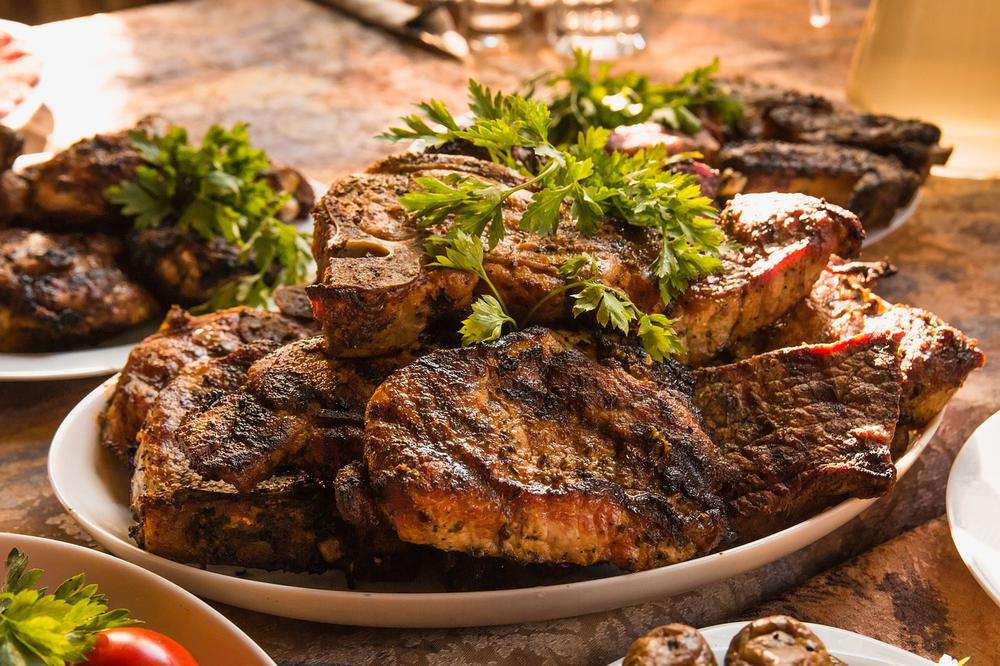
But did you know there are certain foods that can pose serious risks to pig health?
Let me explain why...
The Risks Posed by Feeding of Prohibited Pig Feed
Feeding pigs the wrong kind of pig feed can be really dangerous, you know?
Let me break it down for you:
- Contagious Diseases: When you give pigs meat-based products, you're running the risk of introducing contagious diseases to the whole pig population. This means outbreaks of viruses and spreading sickness among our little porky friends.
- Immune System: Pigs do have a pretty strong immune system, but if you start feeding them leftovers, rotten food, or garbage, you're exposing them to some seriously nasty diseases.
- Australia regulations: Down under in Australia, it's actually against the law to feed pigs any kind of meat, meat products, or even food that's come into contact with meat. The reason behind this is to stop foot-and-mouth disease and African swine fever from spreading like wildfire.
- Risk of Infected Products: Even though there are rules in place, there's still a chance that infected products might slip through the cracks. It's super critical to follow these regulations to avoid getting into trouble and facing fines.
- Ban on Pork Consumption: So, there's also this ban on eating pork for a few different reasons. First off, it helps steer clear of trichinosis (nasty parasite). Secondly, pigs aren't exactly built for desert conditions, so we gotta make sure they're not gobbling up all the food meant for other animals. Lastly, keeping control over our food supply is a big deal.
By understanding and following these guidelines, we can keep our pigs healthy, ensure safe trade, keep the economy going strong, and maintain happy communities.
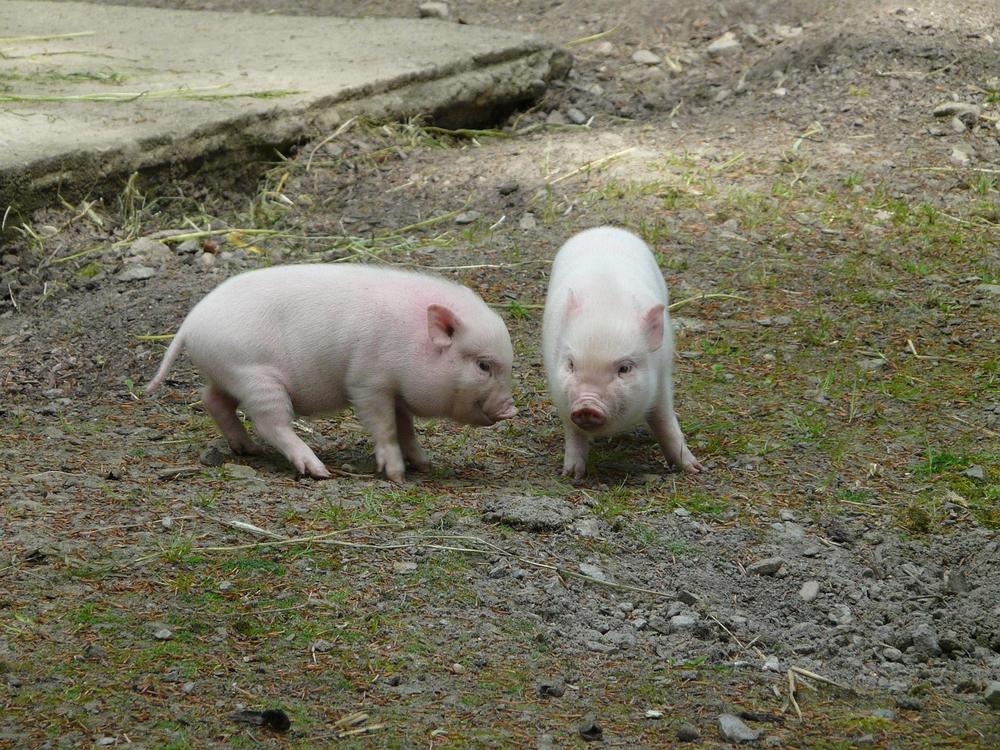
Trust me, it's worth it. 😊
Pigs and Meat: Key Takeaways and Considerations
Key Takeaways:
- Pigs are omnivorous and can consume a variety of foods.
- Domesticated pigs should be fed real pig pellets for optimal health.
- Avoid feeding pigs leftovers, spoiled food, or unsuitable foods.
- Report any suspicious feeding practices or signs of ill-health in pigs.
- Pigs need a balanced diet to avoid obesity, and modern pig farming practices are being criticized.
- Pigs have specific food preferences, and some foods should be avoided.
- Feeding pigs meat or prohibited pig feed poses significant risks and is illegal in Australia.
- Feeding pigs meat can lead to viral outbreaks and disease transmission.
- Compliance with regulations is necessary to prevent the spread of diseases.
- The ban on pork consumption has historical, health, and economic reasons.
And that's all for today folks.
You made it to the end of my blog post! I'm curious, did you enjoy reading it? I always put so much effort into creating informative and helpful content for my readers. It's definitely a time-consuming process, but one that I truly enjoy. That's why I would be incredibly grateful if you could take a moment to share this blog post with others by clicking on any of the social sharing icons. Your support means the world to me. Thank you so much!
Until next time,
-Chris Campbell